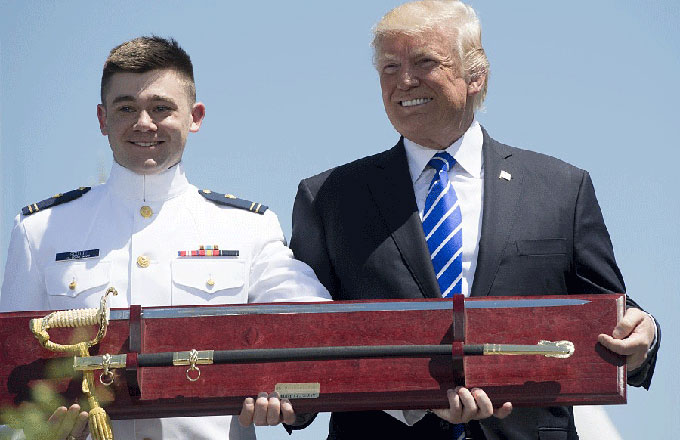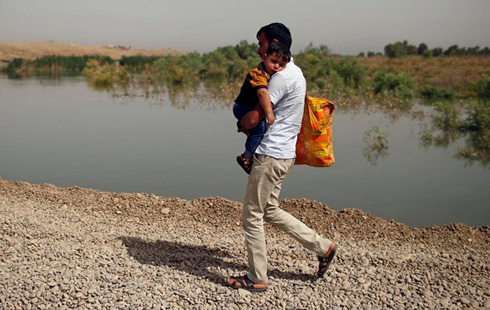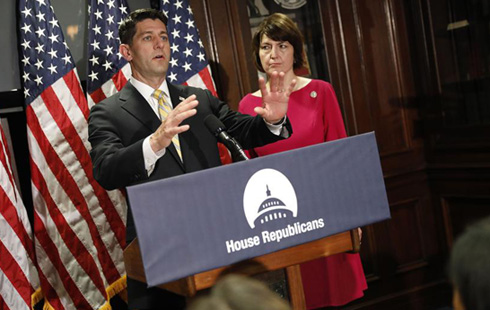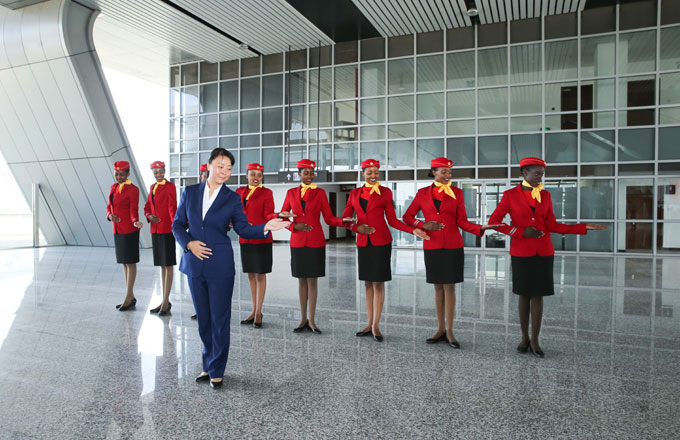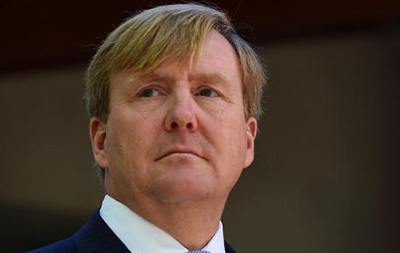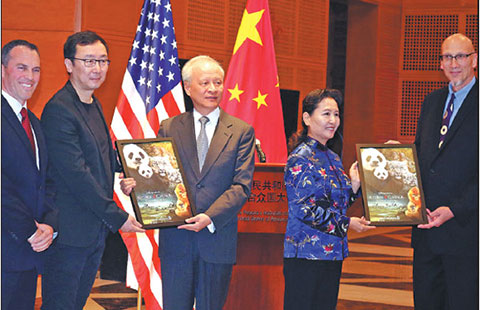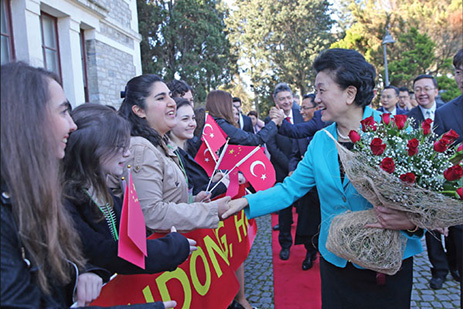Turkish PM calls for immediate end to protests
ISTANBUL/ANKARA - Turkish Prime Minister Tayyip Erdogan called for an immediate end on Saturday to the fiercest anti-government demonstrations for years, as thousands of protesters clashed with riot police in Istanbul and Ankara for a second day.
The unrest was triggered by government plans for a replica Ottoman-era barracks housing shops or apartments in Istanbul's Taksim Square, long a venue for political protest, but has widened into a broader show of defiance against Erdogan and his Islamist-rooted Justice and Development Party (AKP).
|
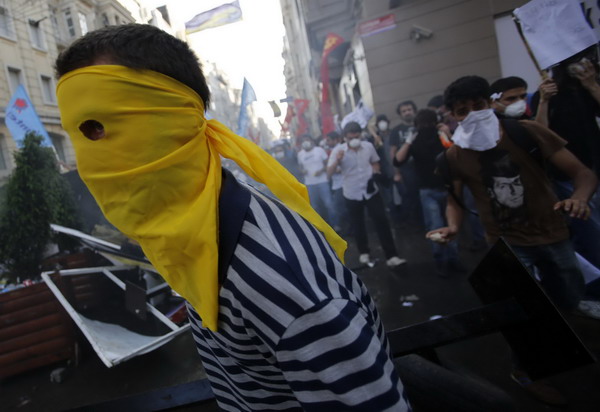 |
|
Anti-government protesters clash with riot police in central Istanbul May 31, 2013. Turkish police fired tear gas and water cannon on Friday at demonstrators in central Istanbul, wounding scores of people and prompting rallies in other cities in the fiercest anti-government protests for years. [Photo/Agencies] In photos: Turkish Police, protesters clash in Istanbul |
Police fired teargas and water cannon down a major shopping street as crowds of protesters chanting "unite against fascism" and "government resign" marched towards Taksim, where hundreds were injured in clashes on Friday.
A police helicopter buzzed overhead as groups of mostly young men and women, bandanas or surgical masks tied around their mouths, used Facebook and Twitter on mobile phones to try to organise and regroup in side streets.
Waiters scurried out of luxury hotels lining the square, on what should be a busy weekend for tourists in one of the world's most visited cities, ferrying lemons to protesters, who squirted the juice in their eyes to mitigate the effects of tear gas.
"People from different backgrounds are coming together. This has become a protest against the government, against Erdogan taking decisions like a king," said Oral Goktas, a 31-year old architect among a peaceful crowd walking towards Taksim. ?
"Dictatorial"
Stone-throwing protesters also clashed with police firing tear gas in the Kizilay district of central Ankara as a helicopter hovered overhead. Further protests were planned in other centres including the Aegean coastal city of Izmir.
The demonstration at Taksim's Gezi Park started late on Monday after trees were torn up to make way for the redevelopment. Erdogan vowed to push ahead with the plans and said the issue was being used as an excuse to stoke tensions.
"Every four years we hold elections and this nation makes its choice," he said in a speech broadcast on television.
"Those who have a problem with government's policies can express their opinions within the framework of law and democracy ... I am asking the protesters to immediately end these actions," he said.
The opposition accused him of behaving like a dictator.
"Tens of thousands are saying no, they are opposing the dictator ... The fact that you are the ruling party doesn't mean you can do whatever you want," said Kemal Kilicdaroglu, leader of the main opposition Republican People's Party (CHP).
Modern-day sultan
Erdogan has overseen a transformation in Turkey during his decade in power, turning its economy from crisis-prone into Europe's fastest-growing, and remains by far the country's most popular politician.
But critics point to his authoritarianism and what they say is his religiously conservative government's meddling in private life in the secular republic, accusing him of behaving like a modern-day sultan.
Tighter restrictions on alcohol sales and warnings against public displays of affection in recent weeks have led to protest. Concern that government policy is allowing Turkey to be dragged into the conflict in neighbouring Syria by the West have also sparked peaceful demonstrations.
Residents hung out of windows and balconies banging pots and pans in support of the protesters in the streets below late into the night in several districts of Istanbul on Friday.
Medics said close to 1,000 people had been injured in the clashes in Istanbul alone. Half a dozen lost eyes after being hit by gas canisters, the Turkish Doctors' Association said.
"I see benefit in telling people about the project ... instead of spraying pepper gas at them," Deputy Prime Minister Bulent Arinc said of the Taksim plans, in an apparent acknowledgement of the heavy-handedness of the police crackdown.
The U.S. State Department said it was concerned by the number of injuries while Amnesty International and the European parliament raised concern about excessive use of police force.
"The severity shown by the police is completely disproportionate and is leading to a spreading of the protests," Martin Schulz, head of the European Parliament and a senior German Social Democrat, said in a statement.
Erdogan acknowledged mistakes had been made in the use of tear gas and said the government was investigating, but said the police reserved the right to use reasonable force.
"Taksim Square can't be a place where extremist groups hang around," he said of a location which has long been a venue for mass demonstrations.
"The police has had a mission there for decades, it didn't start with AKP rule. Wherever you go in the world, in places like this ... governments would take measures. That is what the steps taken here are about."






